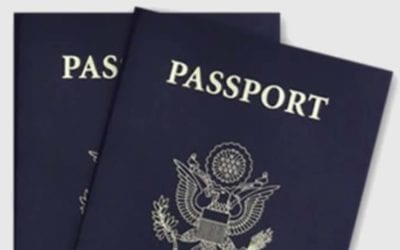For the first time since the airline industry was deregulated in 1978, an advisory committee mandated by Congress is conducting hearings on the state of aviation consumer protections. Air travelers will be represented on the committee by Charlie Leocha, director of the Consumer Travel Alliance.
Here are his opening remarks.
Aviation consumers are families struggling with storing carry-ons overhead and under the seats. They are seniors traveling to meet grandchildren. They are leisure travelers on their way to enjoy themselves at the slots of Vegas, the glitter of Tinseltown, the wilds of New Mexico, the ski slopes of New Hampshire, the fantasy of Orlando, and the history and art of Europe and the Orient.
They are also everyday road warriors who keep the economic engine of the country and the world humming; salesmen presenting a product’s benefits day after day; executives doing deals; politicians connecting with the public, journalists looking for the next big scoop and musicians on their way to their next gig.
All of these passengers have to deal with a unique part of America’s economy — a portion of the economy where consumer issues are handled differently than any other industry in the country.
In this opening meeting, I plan to paint as broad a mandate as possible for our committee. Let’s spread our wings as the airlines might say in an advertisement and take a 10,000-foot look at consumers in the aviation world. We have an historic opportunity, for the first time, to examine the aviation world after 30-something years of airline deregulation from the viewpoint of consumers.
We find ourselves moving into a different world where passengers are looking for more for less and where airlines are finding themselves in the economic position of having to provide less for more money or differentiate between passenger desires.
The Consumer Travel Alliance and this committee’s job is to focus on airline passengers and insure that in this aviation world of shrinking mainline carriers, mushrooming low-cost airlines, codesharing and airline antitrust immunities; consumer protections and market transparency don’t get forgotten for all aviation consumers.
Today, we will hear from the government about consumer protections already enshrined as federal regulations. We’ll hear from consumer and industry groups about airline price transparency, frequent flier miles, baggage fees, seat-reservation fees, cancellation fees, change fees, compensation for flight delays, lost luggage, family prerogatives, tour purchase protections, differences in how airline tickets are sold, PNRs, GDSs, MCOs, PFCs and more.
Airlines and passengers travel in a parallel universe. In some ways a trip through the world of aviation is a drop into a rabbit hole. Just like in Alice in Wonderland, nothing is what it seems.
This is an industry where the rulemakers at the Department of Transportation (DOT) not only write the rules; but their small staff enforces these rules, nationally and internationally for a sprawling industry; and they serve as the sole judge and jury for most violations.
This is a portion of our economy that faces unique jurisdictional issues, such who is responsible for privacy of personally identifiable information held in airline and globe-spanning central computer reservation systems? The FTC doesn’t have jurisdiction. DOT has nothing to do with privacy? Who has jurisdiction if something goes wrong?
This is a portion of our economy where state and local rule of law has been superseded by federal preemption. Aggrieved airline passengers have access to small claims courts for paltry damages, but then are faced with the challenges of federal court for any legal claims resulting in significant damages. The state Attorneys General, bastions of consumer protections across the country, are disenfranchised. This legal conundrum should be addressed. We need to take a look at enforcement of uniform federal law through state courts. This committee cannot solve the problem, but it, hopefully, can raise the issue.
Even the IRS treats airline consumers differently. Many taxes, government charges and fees paid for unused airline tickets cannot be reimbursed. To be honest, I don’t understand the reasoning myself.
Besides writing the rules that provide consumers’ legal protections, DOT holds the keys to airline safety through the FAA. The FAA, all a part of DOT, makes rules that affect every flight from pilot certification to aircraft maintenance and the management of a massive air traffic control overhaul that is underway as I speak.
But they also rule on the more mundane that are specifically directed at passengers such as specifications of child seats, numbers of working lavatories and details of the on-board effects of Kindles, iPhones, iPads and other electronics.
Finally, I would like the committee to take a look at how consumers learn about details of Contracts of Carriage and the arcane federal rules and protections that we will hear enumerated today.
Theoretically passengers sign contracts with the airlines that they never see whenever they purchase an airline ticket. I do not have an answer, but signing a contract that I haven’t read or that I haven’t even be provided the option of reading during the buying process doesn’t pass the smell test for me.
And while we are on the education theme, should the DOT take a more proactive approach to educate consumers about passenger rights and/or find ways to work cooperatively in public/private partnerships together with airlines, airports and travel service providers to keep consumers informed that they have rights and where to find them. Such notifications might take the form of public service posters displayed at airports, public service TV spots played on airport television and perhaps the creation of apps that provide consumer rights information.
Before we start with presentations, I want to emphasize that our aviation system is a marvel. I grew up with travel and still make the major part of my income writing about travel. My father was one of the first to jet across the Atlantic on a 707. My brother and sister-in-law fly every chance they can. Airlines connect the world. They makes our modern lives possible by joining peoples, moving cargo and facilitating our international and domestic economies.
The FAA operates the safest aviation transportation system in the world. The airlines were created by visionaries who loved to travel and for whom, under regulation, excellence in customer service was the prime differentiator.
The fact that the airline industry has had virtually no enumerated consumer protections for decades — other than lost baggage and overbooking rules — speaks volumes about the primary focus that airlines once placed on treating their passengers well.
But, now, with a growing litany of DOT rules and regulations together with emerging consumer issues, it’s time to take a fresh look at passenger protections that have evolved over the past few years and look forward to the future.

Charlie Leocha is the President of Travelers United. He has been working in Washington, DC, for the past 14 years with Congress, the Department of Transportation, and industry stakeholders on travel issues. He was the first consumer representative to the Advisory Committee for Aviation Consumer Protections appointed by the Secretary of Transportation from 2012 through 2018.



